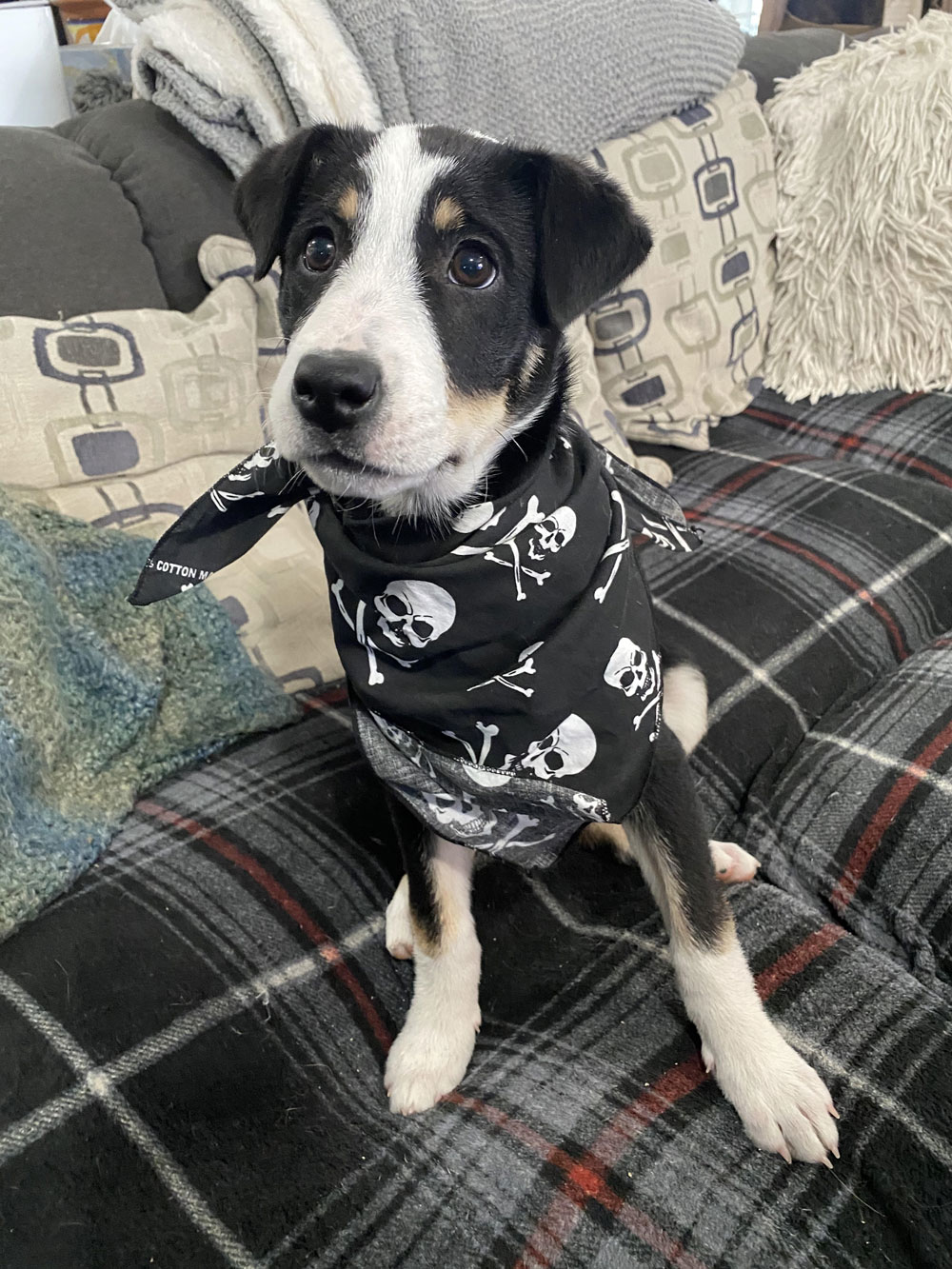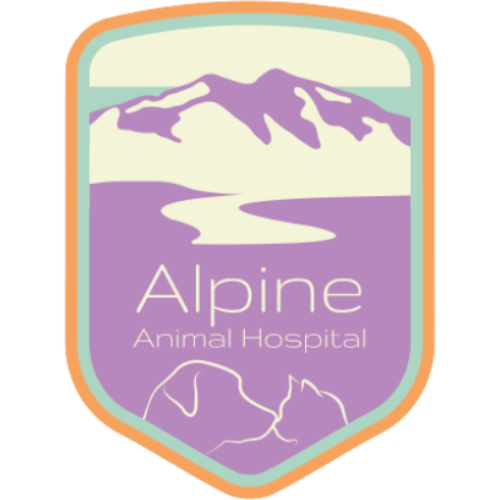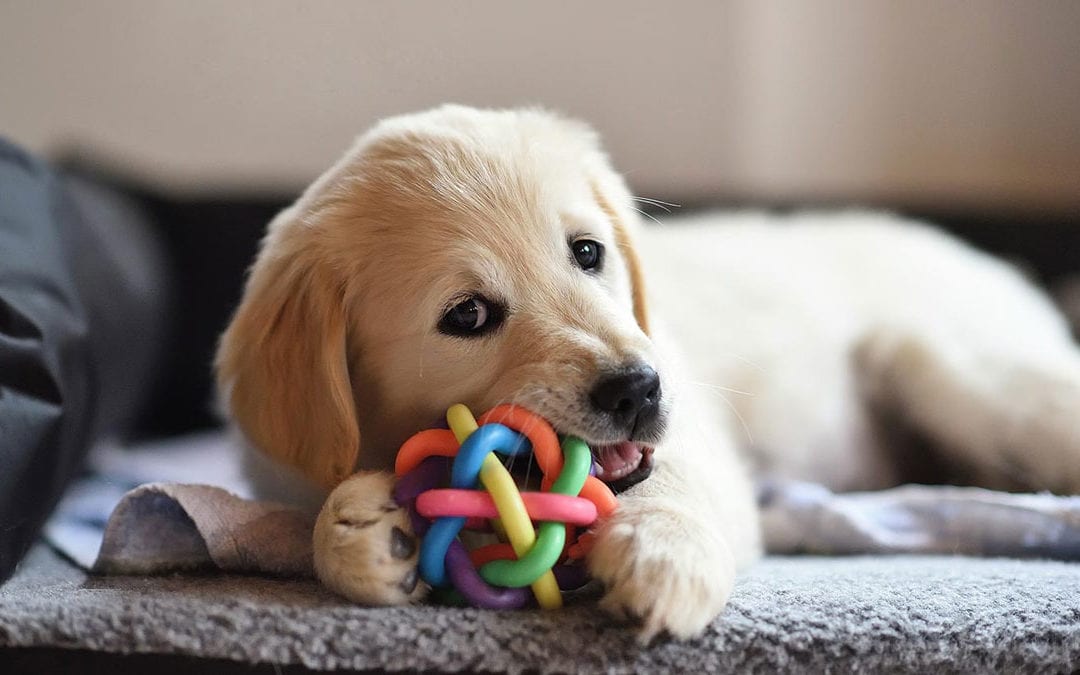Whether you got a “quarantine” puppy, a puppy over the holidays, or you’re planning to get one in the near future, the team at Alpine Animal Hospital has you covered with our new pet care tips!
Welcoming a new puppy into your family is one of the cutest, sweetest, and most delightful experiences in life, but can also lead to a major lifestyle adjustment! Young animals require around-the-clock attention, and providing them with the right amount of love, exercise, socialization, and training are only a handful of the many components of new pet care.
First thing’s first, your puppy will need to be seen by a veterinarian! Many new pet owners can be overwhelmed at this first visit, as there is a lot to cover and usually a lot of questions. Whether it’s your first time getting a puppy or you’re a seasoned puppy expert, a refresher of all the appropriate care instructions is a good idea. A puppy will need to see us more frequently during their first year of life. These visits will include the following services and discussions:
1. Full physical examination: a thorough examination will help detect any conditions or abnormalities they may have been born with. Cleft palates, heart defects, and joint abnormalities are a few of many things your veterinarian will assess on initial presentation.
2. Fecal examination: bringing in a fecal sample is important to determine if your puppy or kitten has picked up any intestinal parasites from their littermates, mom, or the environment.
3. Initial vaccinations: Giving your puppy vaccines and boosters at appropriate times will ensure they are covered against lethal diseases and set them up for lifelong coverage. Puppies need vaccines at 8 weeks old, 12 weeks old, and 16 weeks old for full coverage.
4. Puppy proofing: Be sure to pick up anything and everything you don’t want to be destroyed. It’s also important to store dangerous household chemicals out of the reach of curious canines as well as keep your pup away from the perils of ‘people food’ which can be toxic to dogs, such as chocolate, grapes, and gum.
5. Socialization: Socialization is getting puppies used to people, other animals, and experiences. This involves gently exposing them to new things that they will deal with regularly as adults so that they can react confidently and appropriately rather than fearfully or with anxiety. Developmentally, the ideal window for socialization is between 3-14 weeks of age. During this period of growth, they form relationships and attachments easily. A good rule of thumb is that a puppy should meet 5 to 10 new people each week and that they should experience being in a new place at least once a week. They should be exposed to new sights, sounds, tastes, and smells. Keep things positive and non-threatening with treats, toys, and affection. Spending time with healthy, fully vaccinated animals is the safest, most beneficial option for your puppy. You can arrange playdates with animals you know are vaccinated. However, try to avoid exposing your pet to an unvaccinated animal, such as at the dog park. This is especially true with young animals because they are more vulnerable to infections than adults.

6. Nutrition: With the ever changing and growing world of dog foods and diet recommendations, it can be difficult as a new puppy owner to sift through the marketing to get the best food for your growing puppy. This choice can impact the puppy’s health in years to come, so it’s best to understand the recommendations so you can make an informed choice. Puppies require distinct nutritional needs which can be found by looking at the dog food bag for the development stage, which should be growing puppies. Brands such as Purina, Hills, and Royal Canin use board certified veterinary nutritionists to properly formulate diets for your puppies growing needs.
7. Exercise: In large breed dogs that are predisposed to joint disease (OCD and hip dysplasia), we know that excessive forced exercise at a young age can lead to long term damage. It’s important to watch out for the puppies’ cues when they have reached their limit. This could be when they lay down, stop walking, or are panting excessively it would mean it is time to stop.
8. Preventatives: We recommend giving your pet year-round preventatives for fleas, ticks, intestinal parasites, and heartworm because of the diseases they can transmit or cause to your pet.
9. Training: Potty training is an essential life skill for a puppy. Puppies like to have structure and consistency that allows them to learn their place and to know what is expected of them. Crate training is another important skill to work on with your new pet. It teaches them to be confident and comfortable being left alone and can even help with potty training. We recommend leaving the crate open and accessible at all times. Throw in their favorite dog beds and toys so they can associate the crate as their safe space.
10. Take pictures and videos! Puppies grow quickly, and before you know it they are nearly full grown. Video their first time at the dog park, their first time trying to balance a treat on their nose, or any of the cute situations they will inevitably get themselves into.

